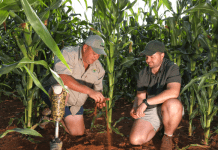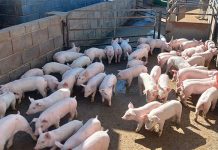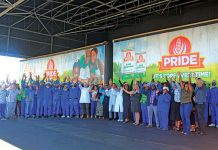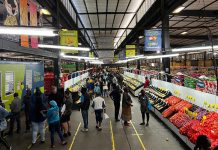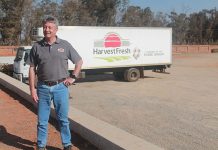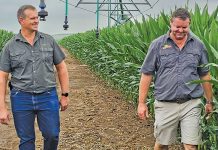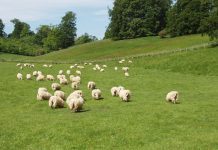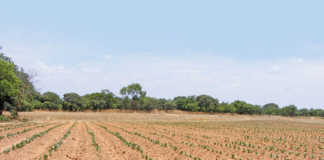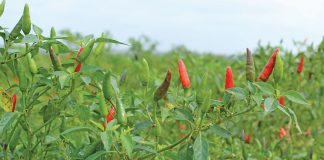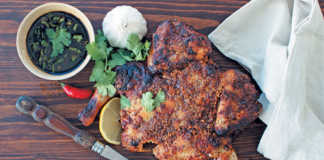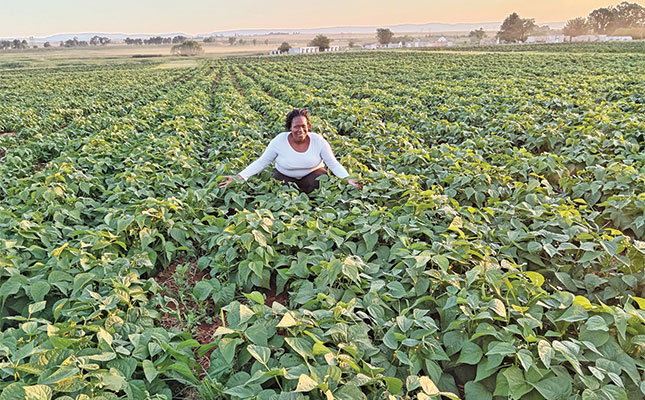
Photo: Supplied
Sophy Litshani Musabeni always knew she wanted to farm. But following her parents’ advice to first obtain a professional qualification, she studied to be a nurse. Once she completed her studies and started working, it was evident that her passion for farming had not waned, and she still longed for the land.
READ Hard work and excellence recognised at agri awards
She spent all her free time researching farming practices online and saved all the money she could to fund her dream. In 2017, she leased her first piece of land, 15ha in Mapleton, Gauteng, and established her business, Vhegies, farming during the day and working night shifts as a nurse.
Within the same year, she was able to leave nursing behind and start farming full time, beginning with 2ha of spinach. It was a proud day when she harvested 1 000 bunches of spinach and sent her first shipment off to the Joburg Fresh Produce Market.
Early lessons
“But the spinach didn’t sell, and I didn’t get a cent for my hard work. The market was flooded with spinach that week so there was no demand,” says Musabeni.
She learnt an important lesson that day: know your market, and have more options. “I realised I couldn’t just rely on the fresh produce markets; I needed to find other avenues. I also realised that I needed to stagger production so that I could make smaller, more regular deliveries, rather than plant and harvest everything all at once.”
READ Key farming tips to help new farmers succeed
Not afraid to knock on doors, Musabeni approached supermarkets in the area, asking if they would buy her produce. She learnt that while some would take produce directly from farmers, others relied on central distribution centres that sourced, processed and packed produce on behalf of the supermarkets.
The former were easier to sell to, while the latter required supply agreements that came with a host of regulations.
She then revised her strategy, diversifying the volume of vegetables she planted.
“This reduces production risk because while one crop might be hit by pests, another would survive. It also means that if prices are down for one crop, I at least have other products that might fetch higher prices.”
To sell her products, she initially relied on fresh produce markets in Gauteng and retailers that would take produce directly from farmers, while investigating better options. Today she supplies several companies that process fresh produce for supermarkets, airlines and the hospitality sector.
Valuable mentors
Musabeni’s production cycle starts in September when green beans, spinach, baby marrows, patty pans, butternut, cabbage, beetroot, and pumpkins are planted. A new batch of each is planted every two weeks to ensure continuous production up until autumn.
She then switches her production to a farm in Masisi, Limpopo.
“One of the first lessons I learnt is that winters in Mapleton are too cold to plant vegetables because of the high prevalence of frost. This means I wouldn’t have an income for six months of the year. I remembered that winters were far milder where I grew up in Limpopo and so decided to lease land there to continue production,” she explains.
Musabeni notes that doing proper research on a farm is important before buying or signing a lease agreement. “If the soil is poor, fertiliser costs will be high, eroding profit.”
READ Mentorship – the good, the bad and the ugly
Production has gradually increased since she started farming in 2017. She owns her land in Gauteng and leases that in Limpopo, bringing total hectarage to 150ha across the two farms.
While Musabeni obtains much of her knowledge of farming from online research, she admits that she is not afraid to ask other farmers for advice.
“There’s a farmer next door to me in Mapleton – Johan Steyn – who farms 1 000ha of vegetables. I noticed that his lands were always so neat and tidy, so I knocked on his door one day and asked how he managed it.
“He was so open with advice and has become an important mentor to me. He explained his weed and pest control programmes, and how to best prepare a field before planting to get better yields. The land needs to ploughed, disced and rotovated before each batch of seedlings are planted to ensure that the soil is aerated and not compacted. It needs to be done properly,” says Musabeni.
Both farms provide good-quality borehole water for irrigation. Irrigation systems are a big expense, and Musabeni again trawled the Internet for research on selecting the right system.
She then purchased a larger system than she needed when she made the investment, knowing she would expand production. She opted for micro irrigation, since these sprinklers cover a wider area, necessitating fewer nozzles than drip irrigation does.
Seedlings are bought from a nursery and planted, rather than planting seeds directly into the soil. This saves time on germination and improves the production efficiency of the land, since seeds have a higher failure rate than seedlings.
Musabeni leans on advice from the nursery staff on how to handle the seedlings. “The most important factors for a high success rate are light and temperature. I plant in the early morning or late afternoon when temperatures are milder.”
The fertiliser applications for each crop are based on soil analysis. Musabeni notes that this is a crucial step to avoid under- or over fertilising.
The vegetables are harvested by hand, which is a labour-intensive process. Musabeni employs 10 permanent and 40 seasonal workers to complete planting and harvesting.
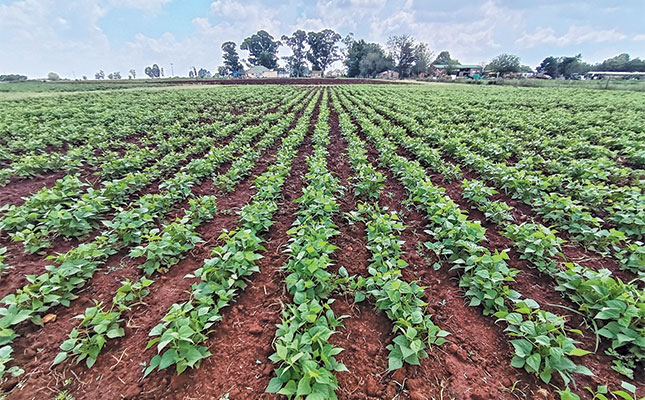
To optimise yield and quality, she has learnt to apply a thorough pest control programme.
“Information is freely available on what products to use for which pests, and how. It’s important to read the label instructions because it explains exactly when the products must be applied,” she explains.
She also receives mentoring from Rossouw Cillié, a mega farmer in the Western Cape, whom she met when she won the Agricultural Writers SA New Entrant to Commercial Agriculture award in 2023.
An important lesson she learnt from him was how to safely use and store crop protection chemicals.
“Initially, I didn’t use the correct PPE [personal protection equipment], and had to be admitted to hospital for asthma after spraying the herbicide paraquat without a mask. Now I know what kind of PPE I need to use for which chemicals,” she says.
Cillié has also advised her on how to better manage farm staff, deal with conflict between workers, and handle marketing, and introduced her to new marketing channels.
“If I have a question, I send him a WhatsApp and he will advise me. He’s been immensely helpful and I’m hoping to visit him in person on his farm later this year so I can learn even more.”
One of the other lessons Cillié taught Musabeni was to pay close attention to product specifications for different markets.
“Each market has its own preference for the size each type of vegetable must be. If it is smaller or bigger than what they want, it will be rejected. So, it’s important to grade the products for each market and send them accordingly.
“[Cillié] also explained the many factors that cause products to be rejected by the market, like bruises, rust on beans, or overgrown vegetables. Transporting the produce in a refrigerated truck is important so that the produce stays fresher for longer. I’ve since invested in such a truck because there are certain supermarket groups that you can’t deliver to unless you have one,” she says.
Capitalising on convenience
Musabeni achieved an important milestone in 2024 by establishing her own brand of precut vegetables. Supplying vegetables to processors opened Musabeni’s eyes to a whole new market, and she realised that there was ample opportunity for another brand on the market.
“The economy is growing, and there is a big demand for food that is convenient to cook. But at the same time, food is becoming very expensive. I noticed that processed vegetables are far pricier than fresh vegetables, and when I investigated why, I realised it was because most processors were not farmers themselves. Having to buy in the produce pushes up the cost.
“So, I worked out that if I processed the produce I grew, I could send it to market at a lower price. Because my products were that much cheaper, I gained market share very quickly and today, I can’t keep up with demand,” she explains.
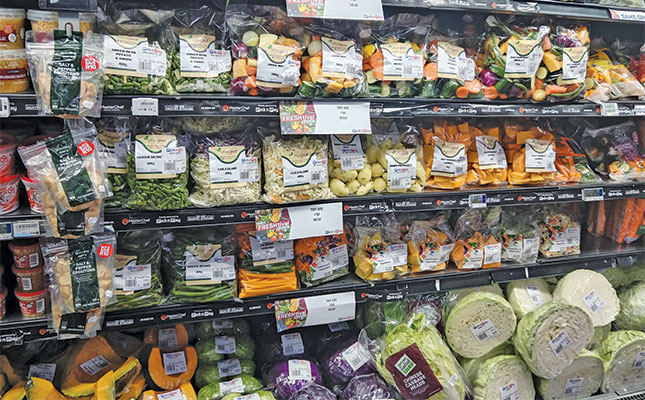
Processing facility
Musabeni erected a processing facility on the Gauteng farm and also leases another next to the Joburg Fresh Produce Market. When demand exceeds what she can supply from her own farm, she buys in vegetables from the market.
This, however, can be challenging, since she has no control over prices or available quality.
“If the prices are high, my profitability drops. I’ve also learnt to only buy produce from farms that have GlobalGAP certification, so that I know the proper food safety procedures have been followed.”
Five permanent staff are employed to process the vegetables by hand. Musabeni has relied on savings and reinvested profits to expand her business over the years, and this was also the case when she erected her own facility.
“It was challenging because there are food safety regulations that need to be adhered to, which increases costs. There were also food safety audits that had to be done before I could start processing, and they are expensive. So, I have had to hold back on mechanising the processing for now,” she explains.
With high demand for her products, and increased orders over the recent festive season, Musabeni expects to be able to mechanise some of the processes on her farm and processing facilities this year.
“Labour costs are high, so machines for peeling and chopping are a high priority,” she adds.
True to her enquiring nature, visiting more farms, both locally and abroad, to learn from other farmers and processors is also high on her agenda for 2025.
Looking back at her farming journey, Musabeni admits that although it has been harder than expected, the rewards have also surpassed her expectations.
“Supermarkets from as far as Secunda in Mpumalanga ask for my products. It’s very exciting and motivates me to keep going. Farming is a profession of hope and it takes hard work and perseverance. But I know that in 10 years’ time, my business will be much bigger and I’ll be employing and feeding many more people.”
Email Sophy Litshani Musabeni at [email protected].

